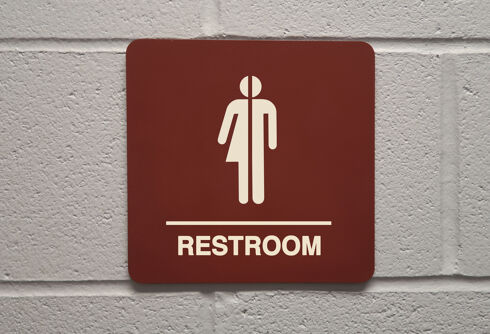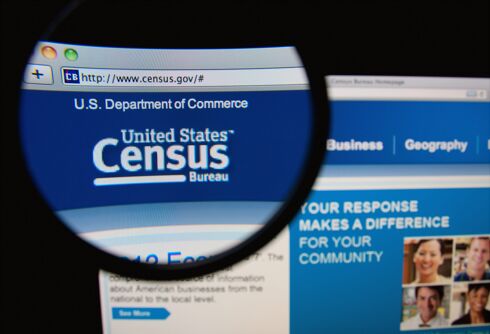The year 2011 saw significant progress on the part of LGBT Americans in their goal of realizing full equality for themselves and their families.
From the repeal of “Don’t Ask-Don’t Tell,” a policy which had banned gays and lesbians from serving openly in the U. S. military, to winning strategic battles in gaining civil unions and full marriage equality for same-sex couples in several states, victories in a significant series of elective offices across the country, 2011 ended on an upbeat note for the nation’s LGBTQ community.
Following are LGBTQ Nation’s top five picks as the most significant developments of the year.
New York state legalizes same-sex marriage
In an historic late night vote on Friday, June 24 — the last vote of the legislative session, after years of failed efforts to align votes in both Assembly and the Senate, and on the eve of New York City pride — the New York state Senate approved the Marriage Equality Act, granting same-sex couples the right to marry.
Never Miss a Beat
Subscribe to our newsletter to stay ahead of the latest LGBTQ+ political news and insights.
Democratic Gov. Andrew Cuomo, who championed the bill and listed marriage equality as among his top three legislative priorities for the year, called the vote “a beacon of social justice,” and signed the bill into law just before midnight that same night. The Empire State would become the sixth and most populous U.S. state to-date, to allow gays and lesbians to wed.
Evan Wolfson, founder and President of the advocacy group Freedom to Marry, called the vote “without a doubt a watershed moment for our country and our campaign,” and said that “together, we are changing hearts and minds and building the kind of successful campaign it will take to win marriage nationwide.”
“New York has finally torn down the barrier that has prevented same-sex couples from exercising the freedom to marry and from receiving the fundamental protections that so many couples and families take for granted,” said Cuomo, in a statement issued as he signed the historic bill into law.
Just 30 days later, in the early morning hours of Sunday, July 24, wedding bells rang for same-sex couples across the state.
In Niagara Falls, against a backdrop of rainbow illuminated cascades, Kitty Lambert and Cheryle Rudd were among the first couples in the state to exchange vows just after midnight. The women, who have five children and 12 grandchildren between them, have been together 12 years.
‘Don’t Ask, Don’t Tell’ comes to an end
The United States Armed Forces on Tuesday, Sept. 20, officially — and for the first time in its history — welcomed openly gay and lesbian service members into its ranks.
“As of today, patriotic Americans in uniform will no longer have to lie about who they are in order to serve the country they love,” said President Barack Obama. “As of today, our armed forces will no longer lose the extraordinary skills and combat experience of so many gay and lesbian service members. And today, as Commander in Chief, I want those who were discharged under this law to know that your country deeply values your service.”
the ban on gays serving openly in the military. The repeal would take effect in 60 days.
Official White House photograph, by Pete Souza.
With that, the 17-year-old ban on gays and lesbians serving openly in the military — a policy known as “Don’t Ask, Don’t Tell” — was repealed.
Army Veteran and SLDN Executive Director Aubrey Sarvis, an Army Veteran and Executive Director of Servicemembers Legal Defense Network (SLDN), said the repeal marked “a monumental day for our service members and our nation.”
In the 17 years since “Don’t Ask, Don’t Tell” was enacted, more than 14,000 service members have been discharged from the military due to their sexual orientation.
With the repeal of “Don’t Ask, Don’t Tell,” the United States joined the list of more than 40 countries that allow gays to serve openly, which includes France, Germany, Spain and the United Kingdom.
Justice Department will not defend Section 3 of DOMA
The Obama administration made a blockbuster announcement on Wednesday, Feb. 23, saying it has concluded that one part of the Defense of Marriage Act (DOMA) will not be able to pass constitutional muster in the 2nd Circuit and that DOJ would not defend that part of the law in two pending cases in that circuit.
It was a dramatic, unexpected, and significant move by the Obama administration and one that would trigger maneuvers by DOMA supporters to appoint an intervenor to defend the law. But beyond the eventual legal consequences of the announcement, the political impact was characterized by most LGBT leaders as historic and monumental.
“This is a monumental turning point in the history of the quest for equality for lesbian, gay and bisexual people,” said Jon Davidson, legal director for Lambda Legal Defense and Education Fund.
NCLR Executive Director Kate Kendell put it even more strongly.
“The President’s leadership on this issue has forever changed the landscape for LGBT people in this country,” said Kendell. “For the first time, the President and the Department of Justice have recognized that laws that harm same-sex couples cannot be justified. This is the beginning of the end, not just for the mean-spirited and indefensible Defense of Marriage Act, but for the entire panoply of laws that discriminate against same-sex couples.”
California governor signs landmark bill that would require teaching of LGBT history
California’s Gov. Jerry Brown on Thursday, July 14, signed into law landmark legislation that would require the historical contributions of gay, lesbian and transgender Americans to be included in history lessons and classroom textbooks.
The bill — known as the FAIR (Fair, Accurate, Inclusive and Respectful) Education Act — would would bring classroom instruction into alignment with existing non-discrimination laws in California and would add LGBT to the existing list of underrepresented cultural and ethnic groups, which are covered by current law related to inclusion in textbooks and other instructional materials.
“History should be honest,” Brown said. “This bill revises existing laws that prohibit discrimination in education and ensures that the important contributions of Americans from all backgrounds and walks of life are included in our history books.”
The new law will require the California Board of Education and local school districts to adopt textbooks and other teaching materials that cover the contributions and roles of sexual minorities, as early as the 2013-2014 school year.
The legislation is expected to have impact beyond California’s borders. Since the state is a major purchaser of educational textbooks, national book publishers often print books tailored for California curriculum that other states utilize.
Obama sets new course for LGBT rights in U.S. foreign policy
President Barack Obama on Tuesday, Dec. 6, directed that the federal government and all agencies engaged abroad to ensure that U.S. diplomacy and foreign assistance promote and protect the human rights of LGBT persons globally.
In a memorandum to all federal agencies and executive department heads, the President wrote, “The struggle to end discrimination against lesbian, gay, bisexual, and transgender (LGBT) persons is a global challenge, and one that is central to the United States commitment to promoting human rights.”
“I am deeply concerned by the violence and discrimination targeting LGBT persons around the world — whether it is passing laws that criminalize LGBT status, beating citizens simply for joining peaceful LGBT pride celebrations, or killing men, women, and children for their perceived sexual orientation.
[…]
“No country should deny people their rights because of who they love, which is why we must stand up for the rights of gays and lesbians everywhere.”
The President’s memo detailed six major points in the administration’s new comprehensive strategy to combat LGBT human rights abuses abroad, and in a major policy speech delivered that same day to members of the U.S. mission to the United Nations in Geneva, Switzerland, U.S. Secretary of State Hillary Clinton called LGBT people the “invisible minority.”
“They are arrested, beaten, terrorized, even executed. Many are treated with contempt and violence by their fellow citizens while authorities empowered to protect them look the other way — or too often, even join in the abuse.
“They are denied opportunities to work and learn, driven from their homes and countries and forced to suppress or deny who they are to protect themselves from harm. I am talking about gay, lesbian, bisexual and transgender people: human beings born free and given, bestowed equality and dignity who have a right to claim that, which is now one of the remaining human rights challenges of our time.”
“Gay rights are human rights, and human rights are gay rights,” siad Clinton, echoing the President’s directive.















